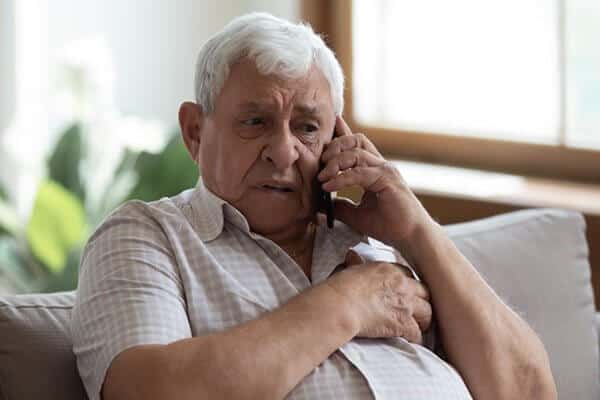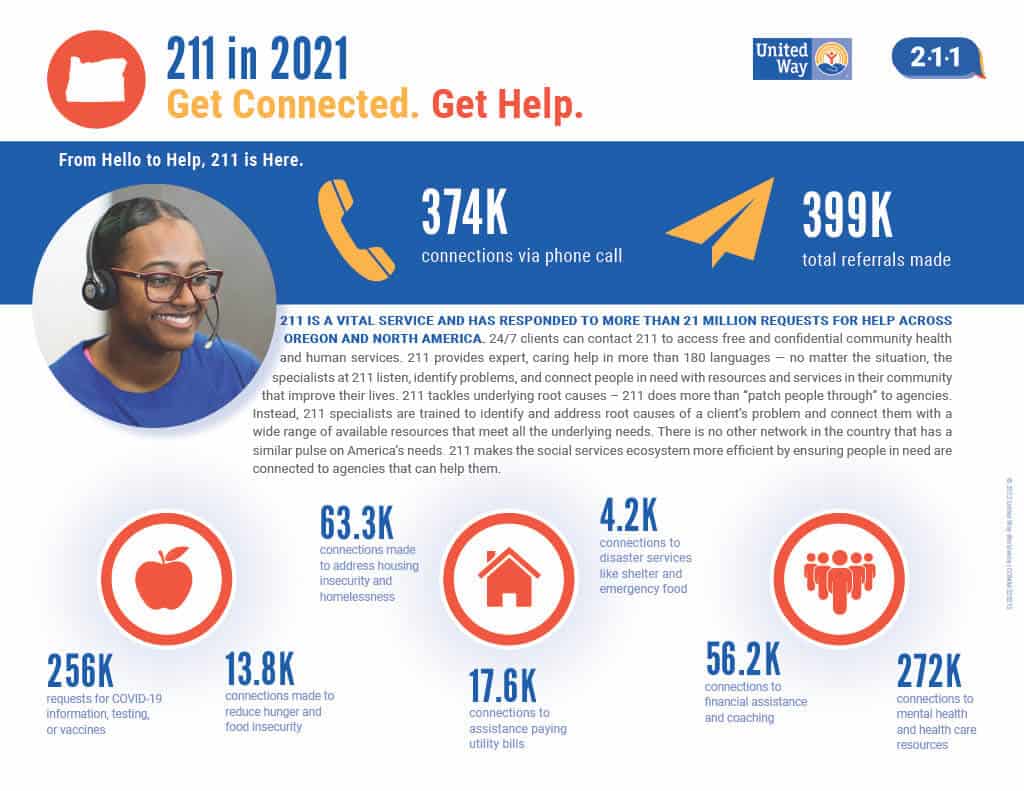7 Reasons You Should Use 211
From hello to help, 211 is here for every person and every problem.
In a crisis, in a disaster, in a pandemic, 211 is here to help every person in our community. From finding food and paying for housing and bills to connecting to other essential services, 211 is there. Every 211 is part of the national 211 network, United to help as many people as possible.
In fact, 211 is a critical part of United Way’s fight for the health, education, and financial stability of every person in every community.
Here’s why you should use this vital service—and let others know about it, too.
#1
211 provides connections to many kinds of resources and services, including:
- Crisis and emergency counseling for mental health concerns, domestic violence, sexual assault, and human trafficking
- Disaster assistance
- Food
- Financial assistance, literacy, and coaching
- Health care and insurance assistance
- Stable housing and utilities payment assistance
- Unemployment services
- Veteran services
- Child care and family services

#2
The 211 specialists are amazing listeners! 211 does more than “patch people through” to agencies. Instead, when someone has a crisis they can reach a real person, a caring expert who offers comfort, hope, and solutions – from the first hello to the final connection to help.
Just see what one 211 team member had to say:
“211 is one of the few places where people can call and there is a real person on the other end – to provide information, patience, empathy, and empowering action steps.” – Kimberly Hughes, Call Specialist, Black Mountain, North Carolina
#3
211 is simple and convenient to use. The service is free, confidential, and accessible 24/7/365. It’s also available in more than 180 languages.
#4
There’s more than one way to use 211. You can dial 2-1-1 on your phone and speak to a trained 211 specialist. Or you can browse local resources online. The service is also available by text, web chat, and email. Visit 211.org to learn more about these options.
#5
211 tackles problems at the roots. In fact, 211 specialists are trained to identify and address the underlying root causes of a client’s problem – and connect them with a wide range of available resources that meet all their underlying needs, not just the one that prompted the call, text, or email.
#6
211 helps millions of Americans each year, many of them just like you. In 2020, 211 made 25 million referrals and connections. During the peak of the COVID-19 pandemic in 2020, calls averaged 50,000 per day, nearly triple the rate from the previous year. 211 is available to help anyone, no matter their situation, their income level, or their gender, age, race, religion, or sexual orientation.
#7
211 responds to new needs with innovative services. The COVID-19 pandemic brought the need to change the way many services operated – including community resources that provide food and other essential supplies. In the middle of the pandemic, United Way and Door Dash launched the Ride United Last Mile Delivery Program to help people get access to the food and household supplies they needed. The program enables delivery services from local food banks, food pantries, and other distribution points to older adults, low-income families, and those who can’t leave home, providing meals to those in need. Earlier this year, the program won a 2021 Big Innovation Award from the Business Intelligence Group.
Share this information with as many people as possible, so everyone knows where to turn for help.
